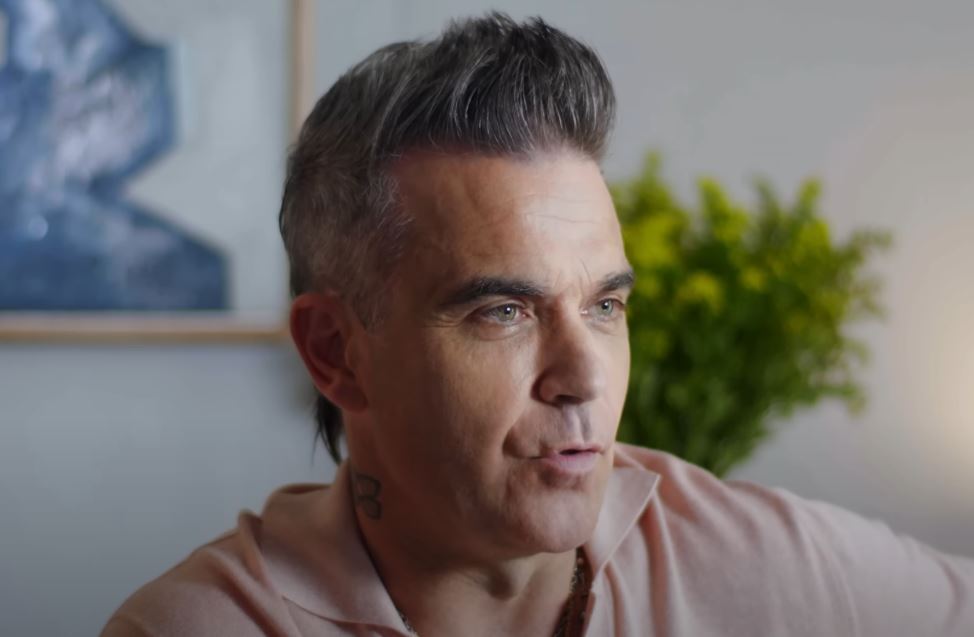
The financial story of Robbie Williams is especially intriguing; it started with a cheeky youngster from Stoke-on-Trent and developed into a $300 million company that is still growing. He didn’t rise according to a traditional plan. While other celebrities plateaued in their mid-thirties or faded under industry pressure, Robbie remarkably reinvented himself repeatedly, building a net worth that now ranks among the wealthiest in Britain.
The majority of former members of British boybands had either left the stage entirely or ventured into obscure side projects by the late 1990s. However, Robbie did the exact opposite when he left Take That in 1995 due to personal turmoil and artistic dissatisfaction. With remarkable ambition, he launched a solo career, releasing Life thru a Lens in 1997. The anthemic “Angels” on that debut album not only broke records but also changed public opinion. All of a sudden, he was not the disobedient member of the group who departed. We were unaware that we needed him as our star.
| Attribute | Details |
|---|---|
| Full Name | Robert Peter Williams |
| Date of Birth | February 13, 1974 |
| Age | 51 (as of 2025) |
| Birthplace | Stoke-on-Trent, England |
| Nationality | British |
| Profession | Singer, Songwriter, Entertainer |
| Former Group | Take That |
| Solo Career Launch | 1996 |
| Notable Hits | Angels, Feel, Rock DJ, Millennium |
| Spouse | Ayda Field (m. 2010) |
| Children | Four |
| Estimated Net Worth | $300–$450 million |
| Record-Breaking Deal | $150 million with EMI in 2002 |
| Real Estate Highlight | Sold mansion to Drake for $70 million |
| Major Awards | 18 BRIT Awards, 8 ECHO Awards |
His catalog grew quickly in the late 1990s and early 2000s. From I’ve Been Expecting You to Sing When You’re Winning, each release demonstrated a musician who wasn’t scared to experiment with different genres. Pop was present, of course, but so were swing, rock, and even electronic beats, all of which were connected by lyrics that were frequently exposed, sometimes brazen, and always engrossing. He was immensely adaptable due to his genre agility, which allowed him to reach new fan bases and maintain his financial relevance over several decades.
In addition to being profitable, the $150 million EMI deal in 2002 was revolutionary. It established him as a trailblazer who recognized the shifting dynamics of the music industry and made appropriate concessions. Global album sales were starting to fall at the time as a result of digital disruption and piracy. In addition to locking in album sales, Robbie’s contract ingeniously included touring and merchandise earnings, guaranteeing a variety of sources of income even as physical CD sales plummeted.
He positioned himself in a unique position by utilizing audacious financial transactions. For a British artist who never made a significant impact on the U.S. market, it was an especially creative move. Robbie focused on Europe, Australia, and Latin America—markets where he regularly sold out arenas and packed stadiums—in contrast to peers who gauged success by American radio play.
Robbie’s incredibly astute real estate strategy has also contributed to the maintenance of his fortune. He paid $32 million for a Beverly Hills compound in 2015, which he later sold to rapper Drake for $70 million, generating a huge windfall. These flips weren’t unintentional. He has a history of accurately timing the real estate market, purchasing high-end estates in Malibu, Los Angeles, and London and then selling them for extraordinarily high profits.
He has branched out from music through calculated risks and strategic alliances. Better Man, a stylized and emotionally nuanced account of his life, was released in 2024. Even though the movie didn’t do well financially in the United States, it was a huge hit with viewers around the world, especially in Australia, where it won multiple AACTA Awards and gave his streaming numbers a new boost.
Both personally and professionally, his long-lasting marriage to Ayda Field has been a stabilizing influence. They have evolved into an aspirational team that is frequently likened to the Beckhams. Ayda is widely acknowledged for having improved Robbie’s reputation and increased the relatability of his brand. They have raised four kids together, and they have won over fans and improved their public appeal by striking a balance between glitz and genuineness.
Robbie hasn’t just relied on nostalgia in recent years. His solo and group careers were revitalized by his 2010 comeback to Take That, which produced Progress, one of the fastest-selling albums in UK history. The subsequent tour sold 1.34 million tickets in a single day, which is even more remarkable. That degree of demand demonstrates Robbie’s significance as well as his capacity to attract attention on a worldwide scale.
Robbie’s influence is still incredibly resilient even now, as new musicians dominate the charts with streaming-first singles and TikTok-driven celebrity. His most recent endeavors, such as the forthcoming Britpop album and partnerships with artists like Tony Iommi, demonstrate that he is still a creative, involved, and forward-thinking artist.
He has a wide-ranging impact on the industry. Long before it was trendy, he helped normalize discussions about addiction and mental health, encouraged lyrical bravery, and mentored upcoming artists. For his fans and the music industry as a whole, his openness about depression, therapy, and body image has had a profoundly humanizing effect.
In the current entertainment economy, where being a celebrity is frequently fleeting, Robbie Williams has defied the norm. He is an anomaly in the best sense of the word because of his artistic flexibility, emotional openness, and financial stability. By means of prudent investments, strategic reimaginings, and a profound comprehension of audience psychology, he has maintained a career that is both lucrative and driven.
